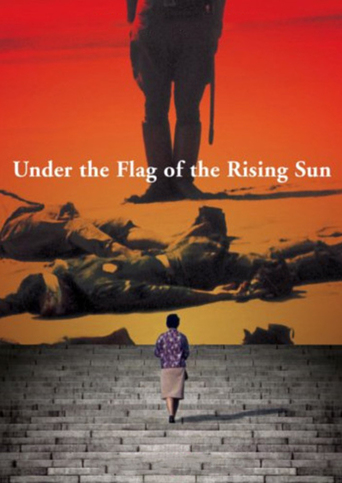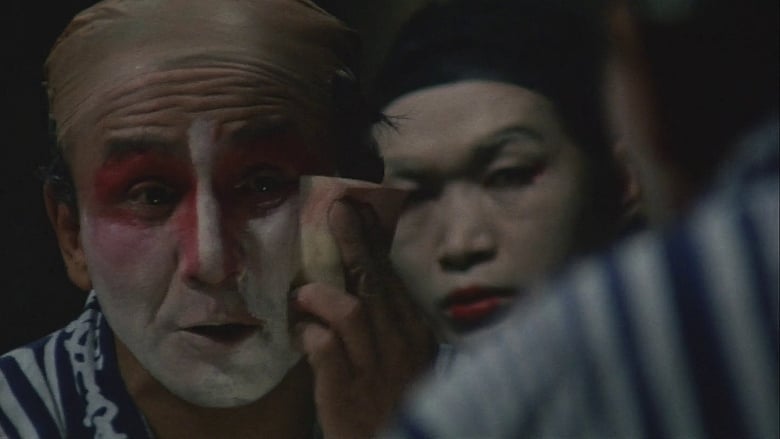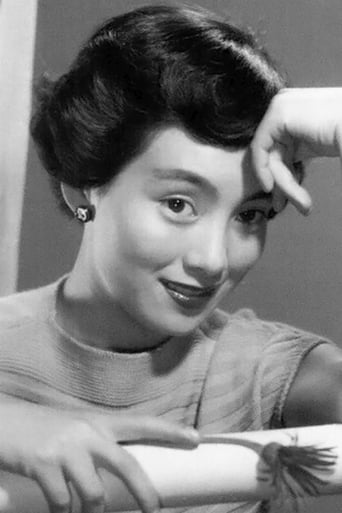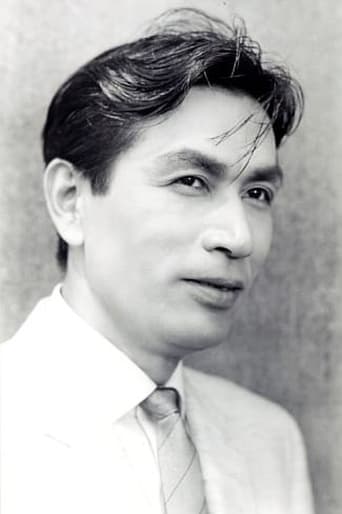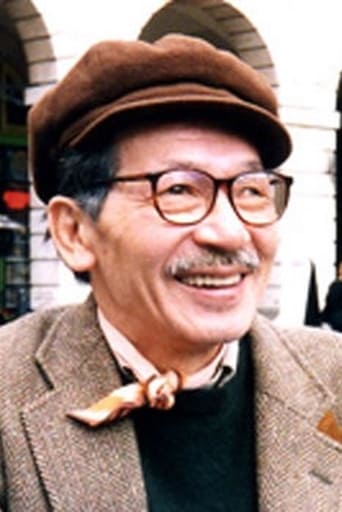Under the Flag of the Rising Sun (1972)
A war widow determined to clear the name of her disgraced husband, who was court-martialed for desertion and executed. Official records have been destroyed, and the ministry that distributes benefits continues to deny her a pension. Twenty-six years after the war, she seeks out four survivors of her husband's garrison. Each tells a dramatically different story about her husband's conduct, but she is determined to learn the truth.
Watch Trailer
Free Trial Channels
Cast


Reviews
What a freaking movie. So many twists and turns. Absolutely intense from start to finish.
At first rather annoying in its heavy emphasis on reenactments, this movie ultimately proves fascinating, simply because the complicated, highly dramatic tale it tells still almost defies belief.
While it doesn't offer any answers, it both thrills and makes you think.
It really made me laugh, but for some moments I was tearing up because I could relate so much.
This is about a woman's quest to find out the truth about her husband Togashi's WWII execution over twenty years after the fact. After spending those twenty years attempting to get answers from bureaucrats, she finally finds some who have some empathy and give her a list of names of people that served with him. She travels to see these people and we see what kind of lives the soldiers returned to. First there's her encounter with a man who lives in what appears to be a mountain of garbage. He tells her that her husband was a great man, a hero who he owes his life to. This man tells her that Togashi wasn't executed at all, that he had to have died in battle. He is unwilling to tell the authorities this story, explaining that he doesn't like to be around people and he hasn't been to a city in years.Naturally she isn't satisfied, part of the reason she wants to find out about her husband's death is to have his name cleared so he'll get the same recognition as other people who died in the war. The next man, a comedic actor who stars in farces about the war, tells her Togashi was executed for stealing a potato from a farmer. The film continues on this way as Togashi's wife gets a different story from every man she encounters. Her journey leads her to people of various social standings including a blind man with an adulterous waitress for a wife, a leftist professor, and a retired public official. Each encounter brings her nearer the truth and gives her a greater understanding of the war experience. She begins to see how terrible it was for all involved and she begins to realize that nobody ever really recovers from it; in other words, a government's recognition of the death of a person it forced to go to war and essentially killed is completely worthless, especially when the government literally executes that person.Fukasaku's film is well plotted and it has a precisely executed theme. Further, the visuals are often impressively delivered. The editing is top notch, particularly in the scenes that suggest the main character's interior state. There's also some impressively handled "new wave" experimental techniques such as still frames and color filters. This film's style called to mind the work of more well known Japanese film-makers of the era such as Nagisa Oshima and Shohei Imamura while still remaining an original, personal work for Fukasaku.
If you are thinking of watching this, you need to know what your are getting into first. This is a violent movie, in the extreme.I do not ordinarily watch violent movies. But I am glad I watched this one, even though I had to turn away a few times. The subject matter is about violence, and the director pulls no punches.It is so easy to romanticize war, either in victory or defeat. This movie clearly has a message for the Japanese people about WWII that the director intends them never to forget. That it was received so well, speaks well of the Japanese people's honesty. And it has a message for her Asian neighbors who suffered at the hands of Japanese soldiers, that perhaps hate is no longer appropriate.Viewing it as an American, I was struck by how different the image is from that of the well-disciplined soldier presented almost as a polite stereotype in Hollywood movies. An American director could not have gotten away with such a movie. However, I can't help wondering if this is perhaps not exactly a representative view of what Japanese soldiers went through.The movie is told very effectively through its plot, following the inquiries of the war widow into the death of her husband. As the truth comes out, it hits you in the gut much as it would have hit this widow.At the same time, the director apparently did not intend for this film to be viewed too narrowly as an antiwar movie. It is not just about war, and it is not just about Japanese soldiers, it is about human beings, and what any of us might do in similar circumstances.
Searing indictment of war and the individuals discredited in its aftermath. Directed by the masterful Kinji Fukasaku, it is a harsh, bleak work that uses monochrome flashbacks with occasional explosions of color, war photographs, and grim narration to tell a terrible tale.Sachiko Hidari, a war widow, has spent twenty-six years searching for the truth about her husband's death. Was he executed? Was he a deserter? Was he a hero? As the government adheres to an official, flawed version of events, the stubborn woman seeks her own answers by speaking to the men who served with her husband. The stories told by these damaged soldiers comprise the bulk of the movie and accounts are complicated by each man's "truth".Exceptionally well acted and directed with a savage determination to depict the insanity of war in its rawest state, this is surely one of Fukasaku's greatest achievements and certainly one of the most honest portraits of homosapien behavior ever branded to celluloid.
First of all I have to say that this film is really tough.It's a bit like Rashômon. A widow wants to find out the truth about her husband being apparent executed in the Second World War by Japanese soldiers.But the administration isn't ready to hand out the documents about his dead. So the woman (Hidari Sachiko) tries alone to find out what really happened, by questioning four survivors who knew her husband. And everybody tells a different story (that's why I compare it with Rashômon, although they are set in different sceneries) and they have different opinions about the dead husband. The end turns out to be more horrible than any of you hard-boiled-audition-viewers might expect. Sorry, just kidding. Kinji Fukasaku does its best to disturb the audience. Compared with Battle Royale, Gunki hatameku motoni is much more real and in its way not entertaining at all, what Battle Royale certainly was.Now here its different. You see real WW2-documental shots mixed with directed scenes. So you never forget what the film is about: Reality. He uses the story of the woman to bring the horror of war to the audience in a rather psychological way. With wanting Hidari Sachiko to know what really happened to her husband, the audience learns a lot more about the terror which reigned the battlefields of New-Guinea. Burned-out, hungry troops, sadistic generals blinded by ultra-nationalism, massacre, torture and finally cannibalism, there's nothing better to expect. There isn't for the audience either.The movie has no happy end. Its one of the most disturbing and pessimistic films ever made. Mixed with the documentary and the sad fate of the woman, this film is also a fable for the consequences of a war not so long ago. Which is not common in Japan, where it still remains a taboo. So the audience has learned something when the film ends. However, this is how I consider this film. It might be different for other people. My brother watching it with me, was stunned. But some people left the theater as well. I only recommend it to anybody who liked both "Paths of Glory" and "Bullet in the Head" or who is interested in Japanese History and its problems anyway.

